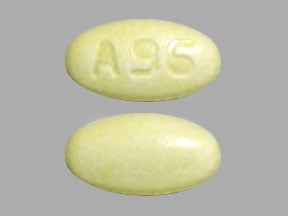
Potassium Citrate ER Coupons & Savings Card – Discount Prices from $19.57
Generic for: Urocit-k 10, Urocit-k 5, Urocit-k 15
My prescription
Edit
15 MEQ(1620 MG), Potassium Citrate ER (180 Tablet Extended Releases)
Select pharmacy

CVS
$45.70
COUPON PRICE
Walgreens
$19.57
COUPON PRICE
Albertsons
$50.34
COUPON PRICE
Walmart
$72.93
COUPON PRICEPotassium Citrate ER savings card
Show this card to your pharmacist
Walgreens
$19.57
BIN
ID
PCN
GRP
015995
LHKPU679570
GDC
DR33
Powered by
More prescriptions for kidney stones
More prescriptions for kidney stones
Price history for Urocit-k 15 (brand) & Potassium Citrate ER (generic)
180 Tablet Extended Releases, 15 MEQ(1620 MG)
Average retail price for Urocit-k 15
Average retail price for Potassium Citrate ER
Average SaveHealth price for Potassium Citrate ER
Our price history data is based on aggregated prescription data collected from participating pharmacies in America. Our prescription data updates daily to reflect the latest price changes. If you notice a missing data point, it means there wasn't sufficient data available to generate a monetary value for that date.
We analyzed Potassium Citrate ER prices for (15 MEQ(1620 MG), 180 Tablet Extended Releases) over the last 12 months. The average retail price was $96.80, while the average price using the SaveHealth discount card was $60.68. That's a savings of approximately 37.31% when using our Potassium Citrate ER coupon.
Compared to the generic version, Urocit-k 15 had an average price of $434.39 over the same time period. With the SaveHealth savings card, Potassium Citrate ER is 86.03% cheaper on average than Urocit-k 15.
*Retail prices are based on pharmacy claims data, and may not be accurate when we don't have enough claims.
Potassium Citrate ER dosage forms
Dosage Quantity Price from Per unit 5 MEQ(540 MG) 30 Tablet Extended Releases $7.99 $0.27 5 MEQ(540 MG) 100 Tablet Extended Releases $27.29 $0.27 5 MEQ(540 MG) 180 Tablet Extended Releases $38.08 $0.21 10 MEQ(1080 MG) 1 Tablet Extended Release $2.77 $2.77 10 MEQ(1080 MG) 20 Tablet Extended Releases $7.90 $0.40 10 MEQ(1080 MG) 30 Tablet Extended Releases $10.60 $0.35 10 MEQ(1080 MG) 100 Tablet Extended Releases $32.24 $0.32 10 MEQ(1080 MG) 180 Tablet Extended Releases $42.68 $0.24 15 MEQ(1620 MG) 180 Tablet Extended Releases $45.70 $0.25 15 MEQ(1620 MG) 30 Tablet Extended Releases $11.24 $0.38
| Dosage | Quantity | Price from | Per unit |
|---|---|---|---|
| 5 MEQ(540 MG) | 30 Tablet Extended Releases | $7.99 | $0.27 |
| 5 MEQ(540 MG) | 100 Tablet Extended Releases | $27.29 | $0.27 |
| 5 MEQ(540 MG) | 180 Tablet Extended Releases | $38.08 | $0.21 |
| 10 MEQ(1080 MG) | 1 Tablet Extended Release | $2.77 | $2.77 |
| 10 MEQ(1080 MG) | 20 Tablet Extended Releases | $7.90 | $0.40 |
| 10 MEQ(1080 MG) | 30 Tablet Extended Releases | $10.60 | $0.35 |
| 10 MEQ(1080 MG) | 100 Tablet Extended Releases | $32.24 | $0.32 |
| 10 MEQ(1080 MG) | 180 Tablet Extended Releases | $42.68 | $0.24 |
| 15 MEQ(1620 MG) | 180 Tablet Extended Releases | $45.70 | $0.25 |
| 15 MEQ(1620 MG) | 30 Tablet Extended Releases | $11.24 | $0.38 |
| 15 MEQ(1620 MG) | 100 Tablet Extended Releases | $34.64 | $0.35 |
Potassium Citrate ER Warnings
This safety information outlines potential risks and contraindications associated with the use of this medication. It is crucial to review these details and discuss any concerns with your healthcare provider.
High Potassium Levels: Potassium citrate (Urocit-K) may increase potassium levels in the body, potentially leading to serious heart complications. This risk is elevated for individuals with chronic kidney disease, heart failure, those using other potassium-increasing medications, or potassium-based salt substitutes.
Stomach Lining Damage: Though uncommon, potassium salts may harm the stomach lining, potentially causing bleeding and posing a life-threatening risk. This is more likely if you are taking medications that can damage the stomach or slow digestion.
Contraindications: Situations where this medication should not be used due to significant health risks include:
- Existing or potential high potassium levels.
- Specific digestive issues that could delay the passage of potassium citrate through the system.
- Presence of stomach ulcers.
- Active urinary tract infections.
- Certain kidney conditions.
- Concurrent use of anticholinergic medications.
Always consult your healthcare provider if any of these conditions apply to you before using this medication.
Potassium Citrate ER Side Effects
Common side effects:
- Nausea
- Vomiting
- Diarrhea
- Stomach upset
- Loose bowel movements
Less common but important to monitor:
- Hyperkalemia
- Muscle cramps
- Weakness
- Severe dizziness
- Slow or irregular heartbeat
- Mental or mood changes (confusion or restlessness)
- Tingling of the hands or feet
- Unusually cold skin
Serious side effects:
- Serious stomach or intestinal problems (bleeding, blockage, or puncture)
- Abdominal swelling
- Black or bloody stools
- Severe stomach or abdominal pain
- Vomiting that resembles coffee grounds
- Serious allergic reaction (rash, itching or swelling, severe dizziness, trouble breathing)
Potassium Citrate ER Interactions
Interactions with high risk of serious adverse effects and should be avoided:
- Potassium supplements including salt substitutes
- Potassium-sparing diuretics (including Amiloride, Spironolactone, and Triamterene)
Interactions with moderate risk that may require dose adjustment, closer monitoring, or timing changes:
- ACE inhibitors (e.g., Lisinopril)
- Angiotensin blockers (e.g., Losartan)
- Drospirenone
- Medications that slow down digestion (such as anticholinergics like belladonna and antispasmodics like oxybutynin)
- Strong opioid pain relievers like morphine
- Eplerenone
- Heart medications such as quinidine and Digoxin
- Lithium
- Pramlintide
Interactions with low risk that usually do not require a change in therapy:
